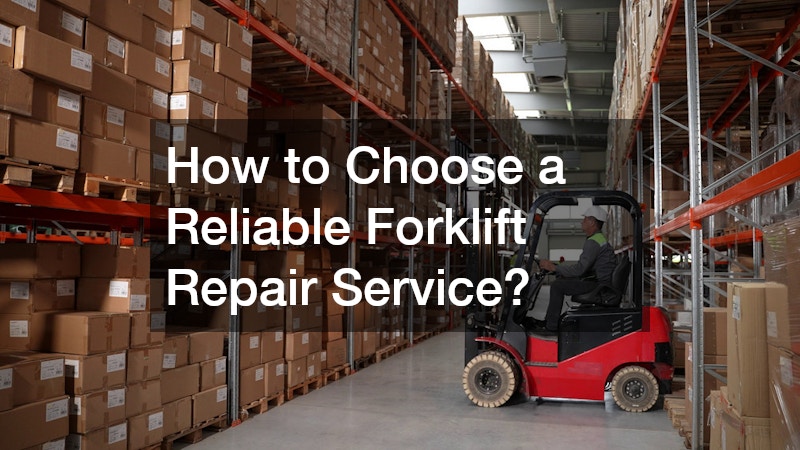Forklift Repair Service Keeping Your Equipment Running Safely and Efficiently
In the fast-paced world of logistics and warehousing, forklifts play a crucial role in ensuring operations run smoothly. To maintain productivity and safety, regular maintenance and repair of your forklift equipment is essential. Ignoring the upkeep of these heavy-duty machines can lead to significant operational disruptions and increased safety risks.
1. Why is Regular Forklift Maintenance Important?
Regular maintenance plays a pivotal role in preventing excessive wear and tear, thereby prolonging the operational life of forklifts. When equipment is regularly serviced, it functions more efficiently, reducing the likelihood of breakdowns.
This proactive approach means businesses can maximize the return on their investment by delaying the need for costly replacements.
Contrary to some beliefs, maintenance is not merely a cost but an investment. Routine checks and servicing help identify minor issues before they escalate into significant problems. By addressing these early on, the overall lifespan of the forklift is extended, ensuring continuous productivity.
Additionally, scheduled maintenance can lead to improved performance and energy efficiency. Well-maintained forklifts not only work longer but also operate more effectively. As a result, companies can enjoy reduced operational costs and enhanced productivity over time.
In numerous jurisdictions, there are stringent regulations governing the operation and maintenance of forklifts. Failure to comply with these regulations can lead to heavy fines and legal repercussions. By ensuring that forklifts are well-maintained, businesses not only protect their workers but also adhere to legal standards.
Furthermore, well-maintained equipment can significantly boost employee morale and confidence. Workers are more likely to perform efficiently and with fewer errors when they know that their tools are safe and reliable. Thus, regular maintenance not only ensures conformity with safety standards but also fosters a culture of safety within the workplace.
2. What are Common Forklift Issues and How Are They Repaired?
Hydraulic systems are essential to the functionality of forklifts, and common issues include leaks and pressure drops. These problems typically arise from worn-out hoses or seals, which can degrade over time. Regular inspections can identify early signs of wear and allow for timely replacements to prevent more severe issues.
The diagnosis of hydraulic problems usually involves checking the fluid levels and examining the condition of hydraulic pumps and motors. Technicians are trained to use specialized equipment to measure pressure differentials and locate leaks. Once identified, the affected components can be repaired or replaced to restore the system’s full functionality.
Maintaining a clean hydraulic system is crucial for its longevity and efficiency. Contaminants can cause blockages and increase wear on the system’s components. Regular fluid checks and replacements, along with thorough cleaning of the system, can mitigate these risks and ensure better performance.
Electrical system failures are another common issue facing forklifts, often resulting in starting problems or operational inconsistencies. Common causes include corroded connectors, faulty wiring, and drained batteries. Regular inspections and preventative maintenance help identify these issues before they lead to total system failures.
Preventative measures, such as ensuring clean electrical connections and adequately charging batteries, can significantly reduce the likelihood of future electrical failures. Employing trained technicians for regular system reviews ensures that forklifts maintain optimal electrical health. This approach reduces downtime and enhances the equipment’s operational readiness.
3. How to Choose a Reliable Forklift Repair Service?
Choosing a reliable forklift repair service can be a challenging task, but focusing on the provider’s expertise can make the decision easier. Evaluating the qualifications and specialized training of technicians is crucial in ensuring high-quality service. A reputable provider should have a team that is familiar with various forklift models and the latest repair techniques.
In addition to technical skills, assessing the provider’s industry experience is equally important. Long-standing service providers often have comprehensive knowledge of common issues and effective repair strategies. This expertise allows them to offer diagnostic insights and efficient repairs, minimizing downtime and enhancing equipment reliability.
Furthermore, accreditation from recognized industry bodies can be a testament to a service provider’s professionalism and commitment to quality. Certified companies are more likely to adhere to industry best practices and safety standards. By selecting a provider with the right credentials, businesses can ensure their forklifts are in capable hands.
Negotiating service contracts that bundle maintenance and repair can lead to better pricing and reliability. Such agreements often provide an ongoing service relationship, where the provider is committed to keeping the forklifts in optimal condition. This proactive approach can result in savings and greater equipment uptime over time.
Regular maintenance and timely repairs are key to ensuring the safety and efficiency of forklift operations. By understanding common forklift issues and knowing how to select a reliable repair service, businesses can optimize their equipment’s performance and longevity. A commitment to proactive care not only enhances operational productivity but also ensures a safer working environment for all employees.

